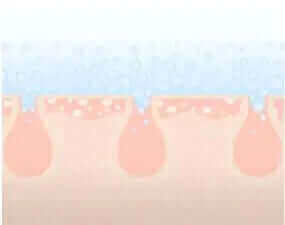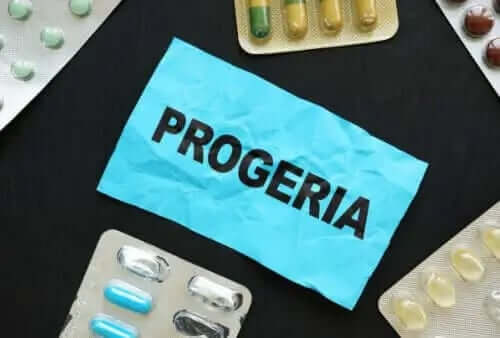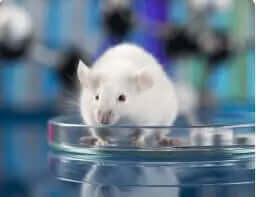Resveratrol: The Complete Guide to Understanding This Powerful Natural Compound
Resveratrol stands at the forefront of natural health compounds, offering remarkable potential for those seeking preventive wellness solutions. This comprehensive guide explores everything you need to know about resveratrol, from its scientific foundations to practical applications that could transform your health journey.
What Makes Resveratrol a Game-Changer in Natural Health
Imagine discovering a single natural compound that scientists worldwide are studying for its potential to support cellular health, longevity, and disease prevention. That compound is resveratrol, a polyphenol found naturally in grapes, berries, and certain plants. What makes this discovery even more exciting is how resveratrol works at the molecular level to protect and enhance our bodies' natural defense systems.
Recent breakthrough research has revealed that resveratrol functions as a powerful natural compound with chemo-preventive properties. Multiple pre-clinical trials have demonstrated its ability to influence cellular pathways associated with healthy aging and disease resistance. Scientists have uncovered fascinating insights into how this remarkable molecule interacts with our bodies, opening new possibilities for preventive health strategies.
Understanding Resveratrol Dosage: Science Meets Practical Application
One of the most common questions people ask is: "How much resveratrol should I take?" The answer reveals the complexity and promise of this compound. Laboratory studies typically use concentrations ranging from 10^-5 to 10^-4 M, which sounds technical but translates into important practical considerations for daily supplementation.
Leading researchers have discovered that the relationship between resveratrol dosage and its effects isn't always linear. Initial studies used 25 mg doses to replicate the amount found in moderate red wine consumption. However, scientists found something surprising: simply increasing the dose doesn't always lead to proportionally higher blood levels of resveratrol. This discovery suggests that our bodies process resveratrol in unique ways that maximize its benefits.
Key Dosage Insights from Recent Research
- Starting doses: Many studies begin with 25-50 mg daily
- Therapeutic ranges: Research explores doses from 150 mg to 1,000 mg
- Bioavailability factors: How you take resveratrol matters as much as how much
- Individual variation: Body chemistry affects optimal dosing
The Science Behind Resveratrol Absorption and Metabolism
Dr. Thomas Walle from the Medical University of South Carolina has pioneered our understanding of how the body processes resveratrol. His groundbreaking research, published in the Annals of the New York Academy of Sciences, reveals fascinating insights about bioavailability and metabolism that could revolutionize how we approach resveratrol supplementation.
What's particularly exciting is the discovery that resveratrol may transform into beneficial analogs (similar structures) within our bodies. These resveratrol-like compounds might actually be responsible for many of the health benefits we observe. This means your body becomes a sophisticated laboratory, converting resveratrol into precisely the forms needed for optimal health support.
Factors Affecting Resveratrol Absorption
| Factor | Impact on Absorption | Optimization Strategy |
|---|---|---|
| Food intake | Can enhance or reduce absorption | Take with healthy fats |
| Time of day | Affects metabolic processing | Consider morning supplementation |
| Formulation type | Dramatically impacts bioavailability | Choose enhanced delivery systems |
| Individual metabolism | Varies person to person | Monitor personal response |
Revolutionary Advances in Resveratrol Delivery Systems
The future of resveratrol supplementation looks incredibly bright thanks to innovative delivery technologies. Recent research published in the Journal of Agricultural and Food Chemistry demonstrates how nanoencapsulation technology can dramatically improve resveratrol's effectiveness. This breakthrough addresses one of the primary challenges in resveratrol supplementation: ensuring the compound reaches its target destinations in the body.
Nanoencapsulated resveratrol shows enhanced chemical stability and antioxidant activity compared to traditional forms. By protecting the compound from degradation in the gastrointestinal tract, this technology allows more resveratrol to enter your bloodstream where it can work its magic. Think of it as giving resveratrol a protective shield that ensures it arrives at its destination intact and ready to support your health.
Resveratrol for Cancer Prevention: Hope Through Science
Perhaps one of the most promising areas of resveratrol research involves its potential role in cancer prevention. Scientists have observed that resveratrol influences multiple cellular pathways associated with healthy cell division and programmed cell death. These mechanisms represent our bodies' natural defense systems against abnormal cell growth.
What makes resveratrol for cancer prevention particularly compelling is its multi-targeted approach. Rather than affecting just one pathway, resveratrol appears to support numerous protective mechanisms simultaneously. This comprehensive action offers hope for those seeking natural strategies to maintain cellular health and reduce risk factors.
Mechanisms of Cancer Prevention
- Antioxidant protection: Neutralizes harmful free radicals
- Anti-inflammatory action: Reduces chronic inflammation
- Cell cycle regulation: Supports normal cell division
- Apoptosis induction: Encourages removal of damaged cells
- Angiogenesis inhibition: May limit blood vessel formation to tumors
Real-World Applications: Making Resveratrol Work for You
Understanding the science behind resveratrol empowers you to make informed decisions about your health. Many people have discovered that incorporating resveratrol into their wellness routine provides a sense of proactive health management. Whether you're interested in supporting cardiovascular health, maintaining cognitive function, or promoting healthy aging, resveratrol offers versatile benefits.
Success stories from resveratrol users often highlight improved energy levels, better exercise recovery, and an overall sense of vitality. While individual results vary, the consistent theme is that resveratrol supplementation, when approached thoughtfully, can be a valuable addition to a comprehensive health strategy.
Choosing the Right Resveratrol Supplement
Not all resveratrol supplements are created equal. The quality, purity, and formulation of your chosen product can significantly impact its effectiveness. Here's what to look for when selecting a resveratrol supplement:
- Source quality: Look for trans-resveratrol, the most bioactive form
- Purity levels: Higher purity (98% or above) ensures maximum potency
- Delivery system: Enhanced absorption formulations offer better value
- Third-party testing: Verification ensures product quality and safety
- Manufacturer reputation: Choose companies with strong research backgrounds
Integrating Resveratrol into Your Daily Routine
Making resveratrol part of your daily wellness routine doesn't have to be complicated. Many successful users find that consistency is key. Taking your supplement at the same time each day, preferably with a meal containing healthy fats, can optimize absorption and establish a sustainable habit.
Consider keeping a wellness journal to track how you feel after starting resveratrol supplementation. Many people report subtle improvements in energy, mental clarity, and overall well-being within the first few weeks. These positive changes often motivate continued use and exploration of optimal dosing strategies.
The Future of Resveratrol Research
The scientific community's interest in resveratrol continues to grow exponentially. Ongoing studies explore new applications, from metabolic health to neuroprotection. Each discovery adds another piece to the puzzle of how this remarkable compound supports human health.
Emerging research areas include resveratrol's potential effects on gene expression, its role in supporting healthy blood sugar levels, and its interactions with other beneficial compounds. These investigations promise to unlock even more ways that resveratrol can enhance our health and longevity.
Safety Considerations and Best Practices
While resveratrol has an excellent safety profile, responsible use involves understanding potential interactions and appropriate dosing. Most people tolerate resveratrol well, but it's always wise to start with lower doses and gradually increase as needed. Consulting with healthcare providers, especially if you take medications or have health conditions, ensures safe and effective supplementation.
Quality resveratrol supplements undergo rigorous testing for purity and potency. Choosing products from reputable manufacturers who prioritize quality control gives you confidence in your supplementation choice. Remember, investing in high-quality resveratrol is an investment in your long-term health and vitality.
Conclusion: Your Journey with Resveratrol Begins Now
The story of resveratrol represents one of nature's most exciting gifts to human health. From its discovery in red wine to advanced nanoencapsulation technologies, this compound continues to surprise and delight researchers with its potential. By understanding the science, choosing quality products, and approaching supplementation thoughtfully, you can harness resveratrol's benefits for your own wellness journey.
Remember, every step toward better health is a victory. Whether you're just beginning to explore resveratrol or looking to optimize your current regimen, the knowledge you've gained positions you for success. The future of preventive health is bright, and resveratrol stands ready to be your ally in achieving your wellness goals.
Frequently Asked Questions About Resveratrol
What is the best time of day to take resveratrol?
The optimal time to take resveratrol depends on your individual goals and routine. Many people find morning supplementation works well, as it aligns with the body's natural metabolic rhythms. Taking resveratrol with breakfast, especially a meal containing healthy fats like avocado or nuts, can enhance absorption. Some research suggests that consistency matters more than specific timing, so choose a time you can maintain daily. Listen to your body and adjust timing if needed to maximize benefits and minimize any digestive sensitivity.
Can resveratrol be taken with other supplements?
Yes, resveratrol generally works well with other supplements and may even enhance their effects. Many people successfully combine resveratrol with omega-3 fatty acids, vitamin D, and other antioxidants like vitamin C or E. Some exciting research suggests that resveratrol may work synergistically with compounds like quercetin or curcumin, potentially amplifying their beneficial effects. However, spacing out supplements throughout the day can optimize absorption. Always consult healthcare providers about specific combinations, especially if you take prescription medications.
How long does it take to see results from resveratrol supplementation?
The timeline for experiencing resveratrol benefits varies among individuals, but many people report initial improvements within 2-4 weeks. Early effects often include increased energy, better exercise recovery, and improved mental clarity. More significant benefits related to cardiovascular health, cellular protection, and healthy aging typically develop over 2-3 months of consistent use. Remember that resveratrol works at the cellular level, so some benefits may be happening even before you feel them. Patience and consistency reward those who make resveratrol part of their long-term wellness strategy.
What foods naturally contain resveratrol?
While supplements provide concentrated doses, several delicious foods naturally contain resveratrol. Red grapes and red wine are the most famous sources, with the compound concentrated in grape skins. Blueberries, cranberries, and mulberries also contain resveratrol, though in smaller amounts. Peanuts and pistachios offer another dietary source. Dark chocolate provides small amounts along with other beneficial compounds. Japanese knotweed, though not commonly eaten, contains the highest natural concentrations. Incorporating these foods into your diet complements supplementation and provides additional nutritional benefits.
Is resveratrol safe for long-term use?
Research indicates that resveratrol has an excellent safety profile for long-term use when taken at appropriate doses. Studies spanning several years show no significant adverse effects in healthy individuals taking standard supplemental doses. The compound's natural occurrence in foods consumed for centuries provides additional confidence in its safety. Most side effects, when they occur, are mild and may include digestive changes that often resolve with continued use or dose adjustment. Quality matters significantly for long-term safety, so choose reputable brands that test for purity and contaminants.
How does resveratrol support healthy aging?
Resveratrol supports healthy aging through multiple fascinating mechanisms. It activates sirtuins, proteins associated with longevity and cellular health. The compound also provides powerful antioxidant protection, reducing oxidative stress that contributes to aging. Research shows resveratrol may support mitochondrial function, essentially helping your cellular power plants work more efficiently. It also influences genes related to longevity and stress resistance. Many users report feeling more youthful energy and vitality, suggesting these cellular benefits translate into real-world improvements in quality of life as we age.
What's the difference between resveratrol and trans-resveratrol?
Trans-resveratrol is the most bioactive form of resveratrol, making it the preferred choice for supplementation. While resveratrol exists in two forms (cis and trans), trans-resveratrol demonstrates superior stability and biological activity. This form more readily crosses cell membranes and interacts with cellular targets. Quality supplements specify trans-resveratrol content because it's the form used in most successful research studies. When shopping for supplements, look for products that clearly state their trans-resveratrol content, as this ensures you're getting the most effective form of this remarkable compound.
Can resveratrol help with weight management?
Emerging research suggests resveratrol may support healthy weight management through several mechanisms. Studies indicate it may help regulate metabolism, support healthy blood sugar levels, and influence fat storage processes. Some research shows resveratrol might enhance the benefits of exercise and support muscle function. While not a magic solution for weight loss, resveratrol can be a valuable component of a comprehensive approach including proper nutrition and regular physical activity. Many users report improved energy levels that make maintaining an active lifestyle easier, indirectly supporting weight management goals.
How do I know if my resveratrol supplement is high quality?
Identifying high-quality resveratrol supplements involves checking several key factors. Look for products specifying trans-resveratrol content of 98% purity or higher. Third-party testing certification provides independent verification of quality and purity. Reputable manufacturers share certificates of analysis and testing results. The supplement should be manufactured in GMP-certified facilities. Clear labeling of dosage and ingredients indicates transparency. Avoid products with unnecessary fillers or artificial additives. Price can be an indicator; extremely cheap resveratrol often reflects lower quality. Research the company's reputation and commitment to quality standards.
What makes resveratrol different from other antioxidants?
Resveratrol stands apart from other antioxidants through its unique multi-modal action. While many antioxidants primarily neutralize free radicals, resveratrol also activates longevity genes, influences cellular signaling pathways, and supports mitochondrial function. Its ability to cross the blood-brain barrier allows neuroprotective effects that many antioxidants cannot achieve. Resveratrol also demonstrates hormetic properties, meaning it can trigger beneficial stress responses that strengthen cellular defenses. This sophisticated action profile, combined with its excellent safety record, makes resveratrol a particularly valuable addition to any antioxidant regimen focused on comprehensive cellular protection and healthy aging.
References:







